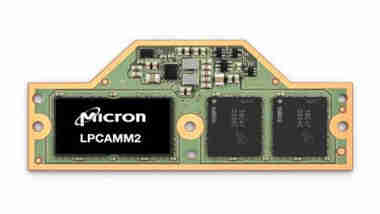Computer RAM gets biggest upgrade in 25 years but it may be too little, too late — LPCAMM2 won't stop Apple, Intel and AMD from integrating memory directly on the CPU ( www.techradar.com )
Computer RAM gets biggest upgrade in 25 years but it may be too little, too late — LPCAMM2 won't stop Apple, Intel and AMD from integrating memory directly on the CPU::LPCAMM2 is a revolution in RAM, but it faces an uphill struggle
